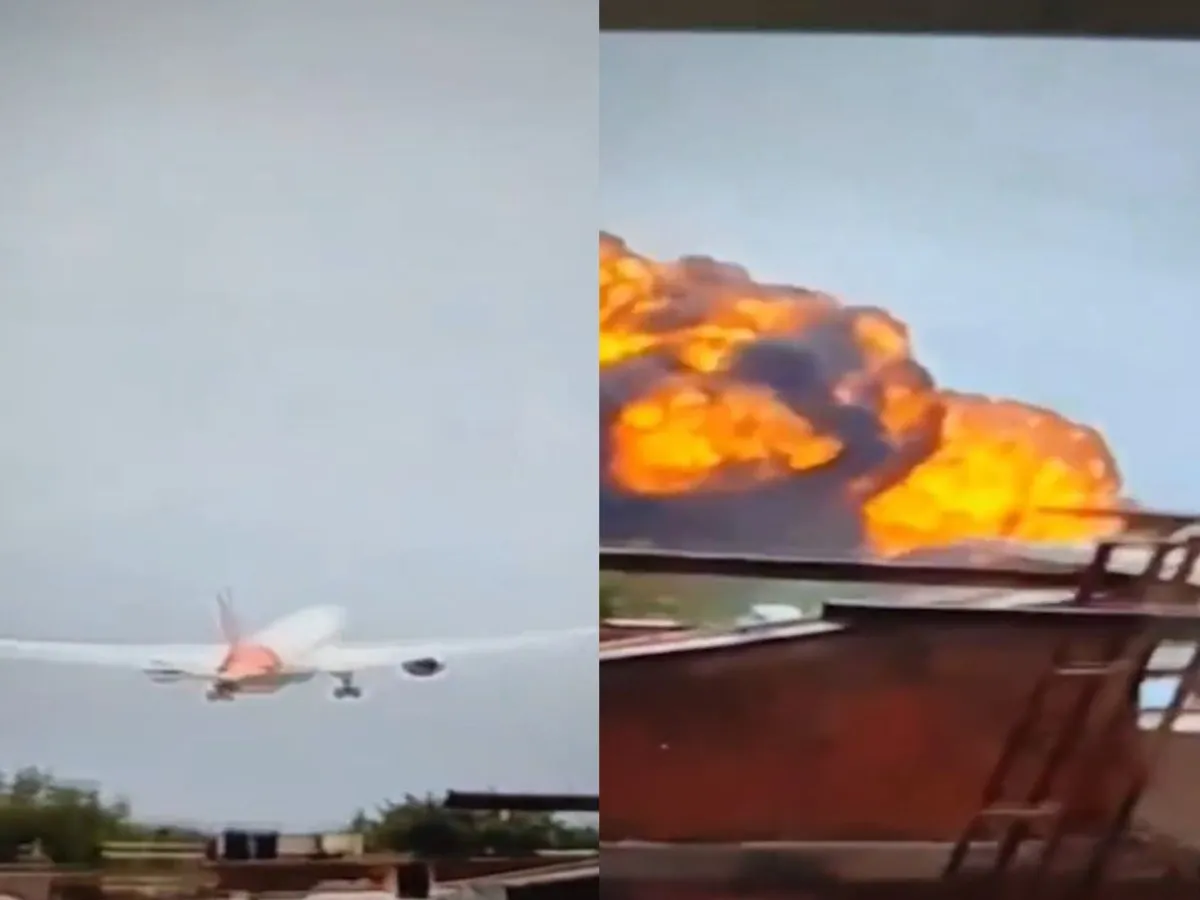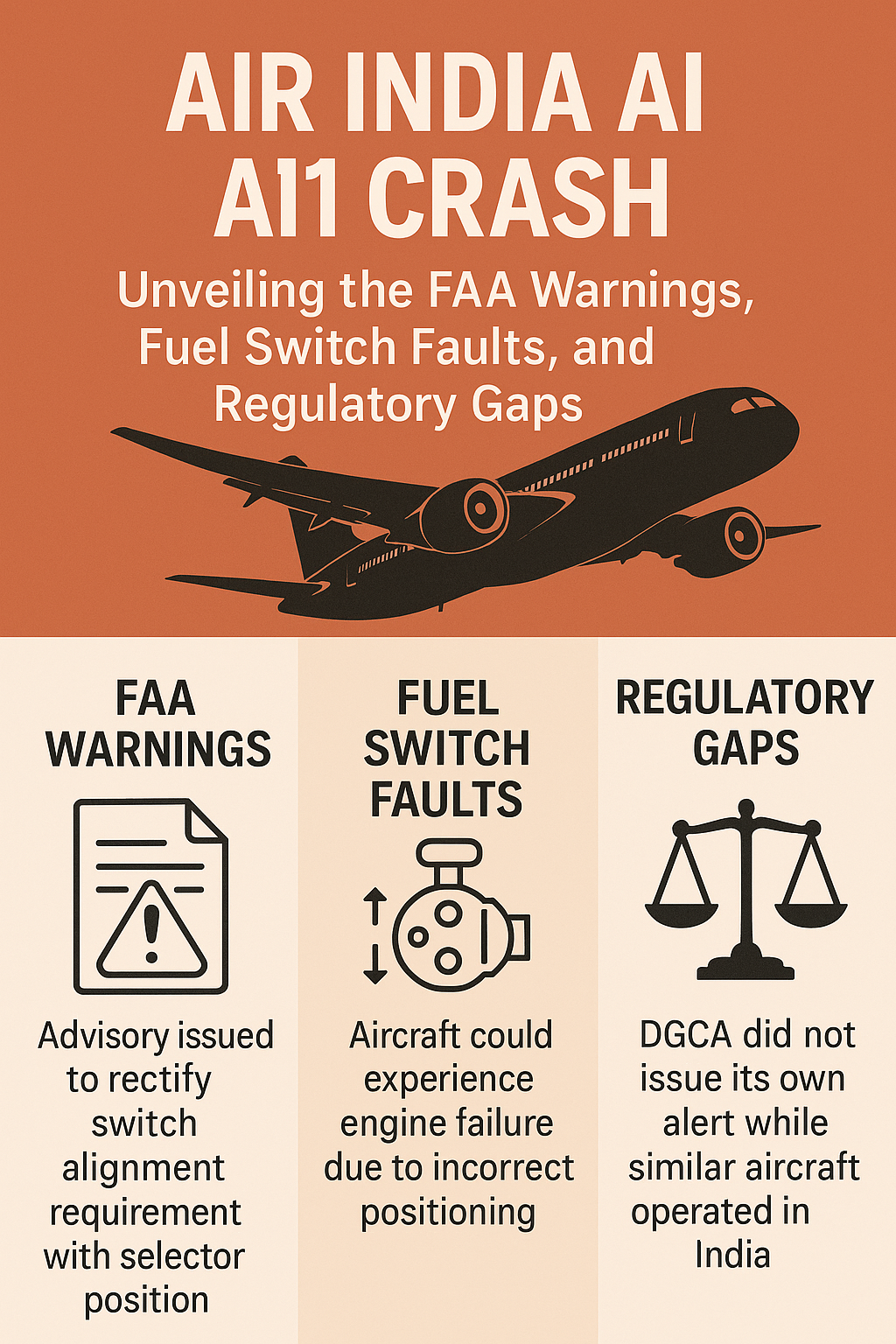The tragic crash of Air India Flight AI‑171 from Ahmedabad to London Gatwick has left the nation in mourning, with 275 people losing their lives. The incident has sparked not just grief, but also intense scrutiny toward Air India, especially regarding how it is handling compensation for the victims' families.
The Crash and Its Aftermath
Flight AI‑171 crashed just seconds after takeoff from Sardar Vallabhbhai Patel International Airport, killing 241 passengers on board. Only one passenger survived. The rest of the casualties occurred on the ground when the aircraft crashed into a nearby medical college.
In response, Tata Group, which owns Air India, announced:
- ₹1 crore as financial aid to each victim’s family.
- An additional ₹25 lakh to address immediate needs.
This move aligns with international norms, as the Montreal Convention of 1999, to which India is a signatory, mandates minimum compensation for air crash victims.
The Controversy: Compensation Under Fire
Despite these announcements, families and their legal representatives have raised serious concerns over the process of compensation.
Allegations by Families and Lawyers
A UK-based law firm, Stewarts, representing over 40 families, accused Air India of:
- Distributing a four-page questionnaire filled with complex legal jargon.
- Asking yes/no questions about financial dependency that could potentially reduce compensation.
- Allegedly coercing families into revealing sensitive financial details.
- Setting up uncomfortable and unprivate environments for form-filling under emotional stress.
- Allegedly threatening that compensation would be withheld unless the forms were filled.
Legal Risk and Strategic Concern
Lawyer Peter Neenan emphasized that:
- The forms include legally significant terms not easily understood by grieving families.
- This could allow Air India to limit its financial liability, potentially saving ₹1.5 crore or more per case.
- The Guardian and London Evening Standard even published parts of the questionnaire, fueling public outrage.
Air India’s Defense
Air India has firmly denied the allegations. According to the airline:
- The questionnaire is standard practice meant to verify identity and relationship.
- No force or threats were used.
- The forms could be submitted via email or in person—no home visits occurred.
- Difficult form-filling environments (e.g., hospitals or morgues) were unrelated to their official compensation process.
As of now, 47 families have received interim compensation, and 55 cases are in process. The airline insisted the process is transparent and compassionate, keeping the grief of the families in mind.
Air India's Official Response
In a press release issued on July 4, Air India categorically rejected the allegations that families were coerced into signing forms or disclosing financial details under pressure. The airline described the claims as "unsubstantiated and inaccurate."
Air India clarified that:
- The “financially dependent” question is a standard and necessary step to identify rightful beneficiaries.
- Forms could be submitted either via email or at a Facilitation Centre in Ahmedabad, with assistance available.
- There were no forced visits to homes or mandates to sign forms under duress.
- Forms filled at hospitals or morgues were unrelated and likely for government purposes.
- So far, 47 families have received interim compensation, and 55 more are in process.
Additionally, the Tata Group announced a voluntary ₹1 crore ex-gratia payment and a ₹500 crore trust for long-term family support.
Read the full statement on Air India’s official website
Details of the Questionnaire
The questionnaire is structured to collect:
I. Passenger Information
- Full name, date of birth, place of birth, sex, marital status, nationality.
- Residential address and age proof (e.g., passport, Aadhaar).
II. Family Members Related to the Passenger
- Names, dates of birth, contact information, relationship to the passenger, email.
- Declaration: "Financially Dependent on passenger - Yes/No".
- Legal documents confirming relationships (e.g., birth certificates, marriage certificates, passports).
III. Occupation & Income of Passenger
- Employment status (Yes/No), occupation, employer details.
- Self-employment status (Yes/No).
- Any additional employment-related information.
- May require further documents later.
IV. Person Completing the Form
- Name, date of birth, contact details.
- Relationship to the deceased.
V. Authorized Recipient of Compensation
- Name, date of birth, contact details, relationship to the deceased.
- Bank account information (account name, number, type, bank, IFSC code).
- Supporting documents: PAN Card, Aadhaar Card, Passport, bank statement/passbook.
Important Notes
- Payment will be made against a receipt and indemnity form.
- ₹25 lakh interim compensation is adjusted against final compensation.
- ₹1 crore ex-gratia payment is voluntary and not an admission of liability.
- Details will also inform eligibility for the ex-gratia payment.
Conclusion
This growing controversy has once again spotlighted the delicate balance between corporate accountability and empathy in crisis management. While Air India claims it’s doing everything by the book, families allege emotional pressure and procedural complexity at a time of immense grief. As legal scrutiny intensifies, the ultimate resolution will likely depend on transparency, empathy, and adherence to international law.








